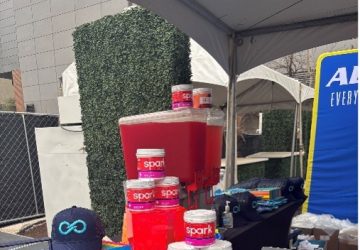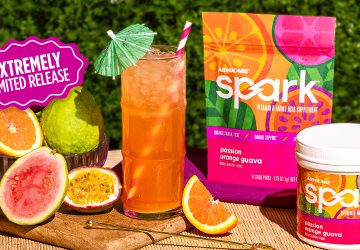Welcome to part two of “The ABC’s of Supplementing Your Skin,” a three-part blog series discussing ingredients that play a key role in supporting and maintaining healthy hair, skin, and nails. In part one of this series, we talked about the role and health benefits of Astaxanthin (A is for Axstaxanthin). So, let’s continue our journey of learning the ABC’s of skin supplementation!
Next up: B is for Biotin.
What is Biotin?
Biotin is a B vitamin, also known as vitamin B7. B vitamins are an important player in the production of energy molecules and the metabolism of fats, carbohydrates and proteins. B vitamins are water-soluble, meaning they dissolve in water and are not be stored for long-term use. Once your body has enough water-soluble vitamins, any excess is excreted through urine. This process is one reason why supplementation may help to fill nutritional gaps.
Biotin in the Body
Biotin is essential for the function of carboxylases, a class of enzymes (specialized proteins that drive certain specific chemical reactions) which support energy metabolism in the body.
Carboxylases are an active part of metabolic pathways responsible for producing different types of fuel for the body, including glucose (for quick energy) and lipids (source of stored energy).
The Food and Drug Administration (FDA) does not have a recommended daily allowance (RDA) for biotin, but does suggest an adequate intake (AI) of 30 micrograms per day.
Sources of Biotin
Biotin deficiency is atypical in the US however symptoms resulting from deficiency of this nutrient include brittle nails and hair, scaly skin, dry eyes, and more. You can help protect your body from potential deficiency by eating a balanced diet and/or taking biotin Tweet This! supplements to fill in nutritional gaps. Keep in mind that just because you may feel you exhibit some of these symptoms, only your doctor can properly diagnose a true biotin deficiency. Here are some foods you can incorporate into your daily diet to support healthy levels of biotin: Tweet This!
- Eggs. Though eggs can be eaten in several different ways, one whole, cooked egg provides approximately 27 percent of the AI of biotin. Raw egg whites have an enzyme called avidin, which blocks the absorption of biotin. Eggs are also a good source of protein and provide a complete range of amino acids and omega-3 fatty acids.
- Whole grains. Wheat, barley and oats are a healthy source of biotin and other vitamins. Eating cereals that are enriched with B-vitamins is another way to support an AI of biotin. Oats provide about 26 percent of the DV for biotin per serving.
- Almonds, nuts, and legumes. Nuts and nut-based butters such as almond butter are high in protein, fiber and biotin. Legumes, such as edamame, make excellent snacks and are packed with minerals and vitamins, including biotin. Per serving, almonds provide 49 percent of the DV for biotin.
- Sweet potatoes. Sweet potatoes are a sweet way to get the most nutrient bang for your buck! Tweet This! Sweet potatoes have antioxidant properties, high fiber content and provide around 29 percent of the DV for biotin.
What are the health benefits of biotin?
Although biotin is great for maintaining healthy hair, skin and nails, it actually has many other health benefits. Tweet This!
- Biotin plays an important role in heart health Tweet This! and has the ability to contribute to good cholesterol or HDL-cholesterol (high-density lipoprotein cholesterol) in the normal range. HDL-cholesterol helps remove harmful cholesterol LDL-cholesterol (low-density lipoprotein cholesterol), which is responsible for causing clogging of arteries and increasing risk of heart disease.
- The nervous system relies on biotin to support neurotransmitter activity and help deliver signals. Tweet This! And, studies have shown that B-vitamins also contribute to cognitive health! Tweet This!
- Biotin can aid in moderating some of the symptoms associated with a deficiency if diagnosed by your doctor. Several studies have shown that women with a biotin deficiency benefit from biotin supplementation. Tweet This! Specifically, biotin supplementation can support the strength, quality and structure of skin, hair, and nails.
One of the myths about biotin is that it increases the rate of hair and nail growth. According to published literature, biotin does not affect the rate of hair and nail growth in non-deficient individuals. The good news is supplementing your body with the nutrients it needs to maintain optimal levels of biotin can support overall health of hair, skin and nails! Tweet This!
So, let’s recap: A is for Astaxanthin. B is for Biotin. What comes next?
Stay tuned for part three of “The ABC’s of Supplementing Your Skin” to find out!





